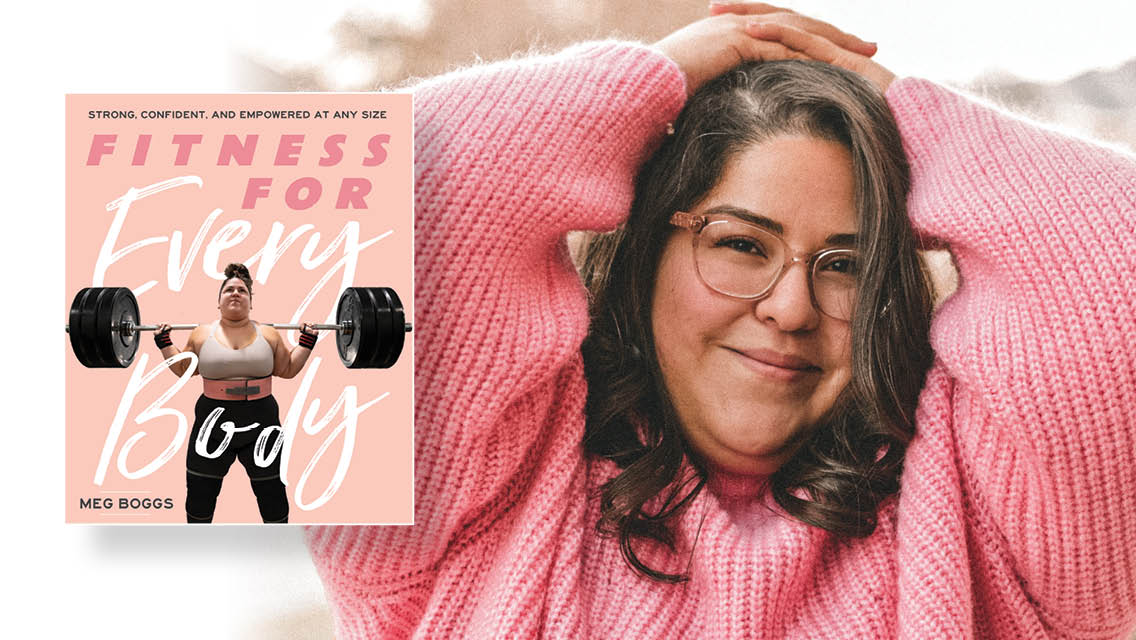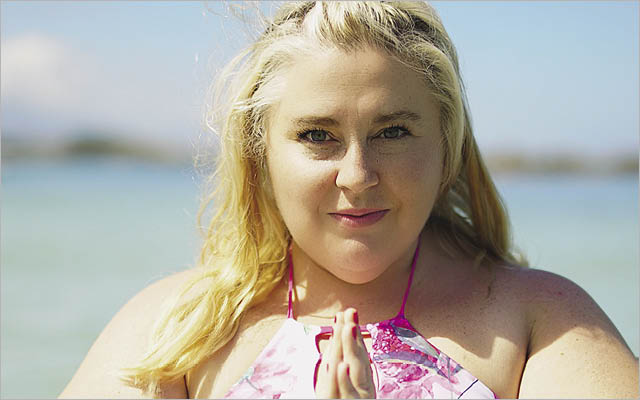My daughter Maci is the reason I first even considered exploring fitness through a self-love and body-confident approach. I didn’t want her to go through what I went through, what countless other women have gone through. I couldn’t even begin to imagine her ever crying on a scale and skipping any of life’s special moments because of that number.
The 2017 Dove Global Girls Beauty and Confidence Report examined the impact of body esteem, pressures, and confidence on girls everywhere and found:
- More than half of girls around the world do not have high body-esteem.
- Many Generation Zers feel anxious about their appearance; 45 percent say they feel more anxious about their appearance than their career prospects or money.
- Eight in ten girls with low body confidence opt out of important life activities, such as engaging with friends and loved ones, due to worrying about the way they look.
- Seven in ten girls stop themselves from eating when they don’t feel good about the way they look.
- Low body-esteem and anxieties over appearance are stopping young people from being their best selves, affecting their health, friendships, and even performance at school.
If I was going to reframe Maci’s perspective of self-worth from this, I was going to have to teach her that so many other parts about her have purpose. I would need to battle those statistics head-on. She would need to somehow discover that she has more to offer the world than her appearance. She would need to believe that her hopes and dreams and talents make her beautifully special and unique.
To do this, I would need to teach her to hold herself in high esteem, to not see fitness as punishment, and to embrace her body. I would need to teach her all the things that I didn’t know when I was growing up.
As of this writing, it’s been almost three years since I had my daughter and first started constantly searching for any answer to how she might have a chance at loving herself. I knew what had to happen first though: I would have to learn how to love myself.
That terrified me to my core because what if I just couldn’t do it? Would this mean that it would be impossible for her, too? This thought was one of the things that kept me up at night in the beginning of my postpartum depression. But those swirling thoughts on the topic, which you might have, too, are a result of diet culture — of years of being obsessed with how we look. So even when it’s difficult to explore these new ideas, it’s huge that they are even being given the chance to be explored. Be proud of that.
Here are some ideas for moms wanting to demonstrate high self-esteem to their kids, especially their daughters:
- Go swimming. Wear the swimsuit and get in the pool with your kids without making any unnecessary comments about the way your body looks in your swimsuit. (Unless you’re mentioning how much of a hot mama you are, because duh.)
- Compliment her often on things that aren’t related to the way she looks, such as how creative or talented she is. She’s obviously adorable and cute and all of those things that you physically see, but the idea is to help her understand that she is so much more than that.
- When she is old enough, have an honest conversation about beauty distortion in the media. Show her examples of manipulated images next to their original images to help her realize that what she sees on TV, in movies, or in magazines is rarely representative of reality. Remind her that because of this manipulation, it’s just not worth making comparisons.
- When she asks you if she’s fat or calls someone else fat, try not to give the word fat any sort of value. Talk about how all bodies have fat and that the amount that any human has varies from person to person for a variety of reasons. Inform her that the amount of fat on someone’s body isn’t an indicator of the person’s health or worth.
- Avoid saying “I’m so out of shape” or “I feel fat” when you mean that you’re feeling tired or stressed-out. Saying either of those phrases implies that you need to be in a certain shape for you to no longer feel those things, which isn’t true. If you hear your child saying either of those phrases, ask her if she can explain what she is really feeling and not what she looks like.
- Let her see you enjoying life during moments when you don’t have on makeup or a styled outfit. Also, try not to mention or make note of the differences in how you look when you have all of that on again. Commenting that you, or any other woman, look better in makeup or fancy clothes will make her think that she needs those things to be beautiful. Allow her to see style/fashion/makeup as a creative outlet, if she chooses, and not as a requirement of being a woman.
- Show her what different types of bodies look like, including athletes of all sizes, ages, and skin types. Talk frequently about the nonphysical strengths that they need, including mental toughness, self-discipline, determination, and leadership skills.
You might think that she’s going to see all of your imperfections and just not understand. I know that you worry that she will see the size of your body and compare it to the media images of the perfect mom, where you feel as though you’ll always fall short.
But, you know what? When sharing my shifting perspectives about weight and self-worth, I am constantly met with criticism from strangers on the internet. “But what about the children? What will they see?” they ask. A daughter will see her mother. She will see happiness and love. She will see pride and worth. She will see power and strength. She will see her mama’s belly that bounces up and down while doing push-ups like a badass. And seeing these things will show her that physical appearance has nothing to do with worth. That she is so much more than what she looks like or how much she weighs. She will see her body for more than something to just be looked at and manipulated. And maybe, just maybe, it will give her the chance to think, Wow, I have such a powerful mother. I must be powerful, too.
Excerpted from Fitness for Every Body: Strong, Confident, and Empowered at Any Size by Meg Boggs. Reprinted with permission from Simon & Schuster.





This Post Has 0 Comments